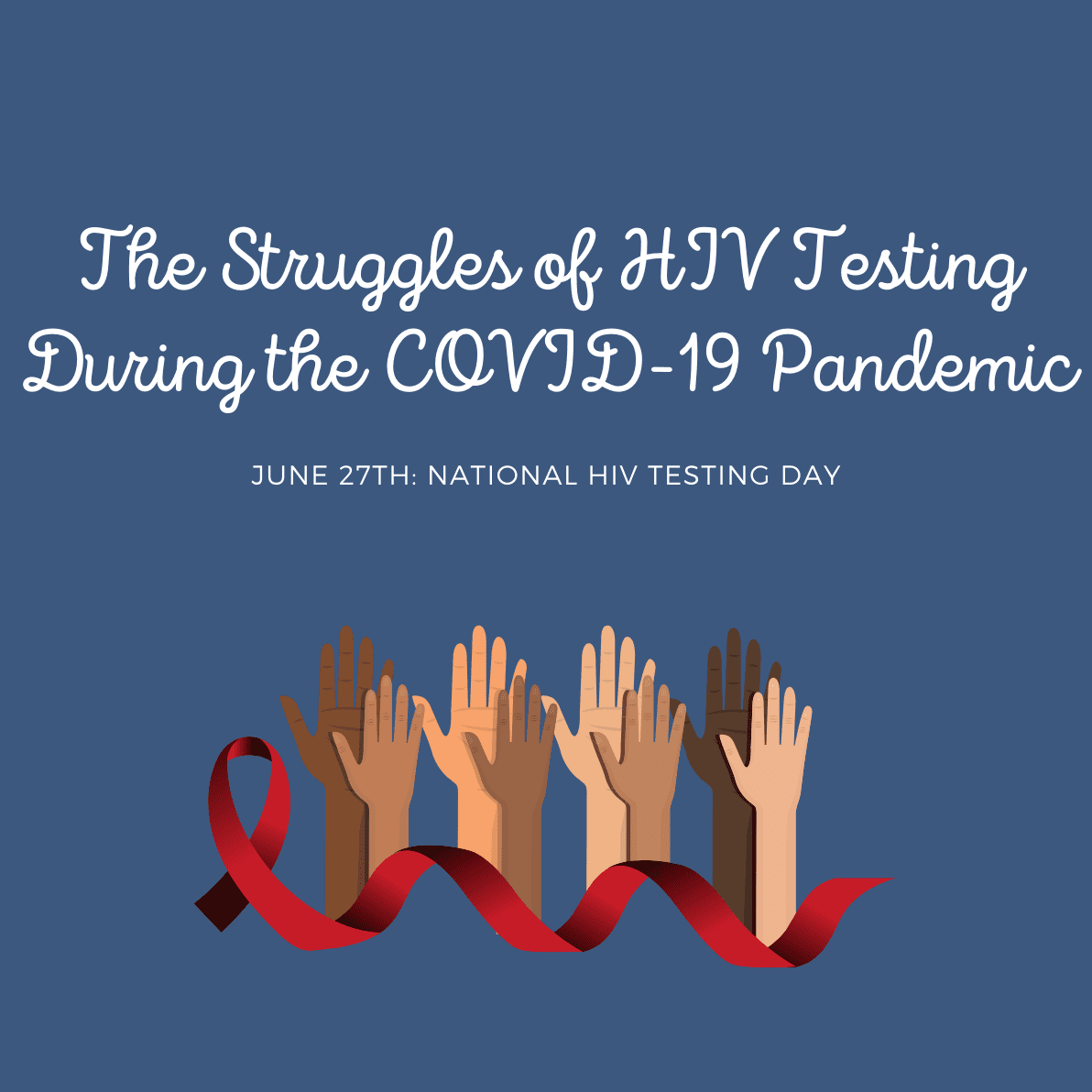COMPASS Initiative® Funds 32 Organizations to Transform the HIV Epidemic in the South
Atlanta, Georgia (November 30, 2018) – In recognition of the 30th anniversary of World AIDS Day and in support of


If you flashback to the beginning of 2020, receiving an HIV test was easy as picking a clinic, walking in, answering a few questions and having your blood drawn or mouth swabbed. Flashing forward to the present, getting tested for HIV resembles more of an obstacle course than a simple exam. Due to the spread of COVID-19 throughout the U.S. there has a been a drastic disruption in HIV testing procedures which has consequently resulted in an excess of HIV-related deaths and onward transmission.1
June 27th is National HIV Testing Day- but unlike many other testing days in the past, getting tested isn’t as accessible as it used to be. In many places, HIV testing that requires face-to-face contact has been scaled back or suspended because of the COVID-19 pandemic response. (CDC) As a substitution for this, many places are trying to expand their services to include self-test kits that can be shipped to homes or other locations where they are needed. Every FDA-approved testing kit includes information on how to connect yourself with the appropriate care if the test is positive.
How does this affect people living with HIV?
For those individuals with a positive HIV diagnosis, there is still a fear that that there may be an increased risk due to their HIV status. COVID-19 is a very dangerous virus especially to those who are immunocompromised and there are still unanswered questions regarding how this affects persons who live with HIV or AIDS.
Questions such as: Do they need to take time off of work? If their viral load is undetectable does that mean that they are safe? Will this virus affect them more severely? All of these questions to which there are no solid answers yet. 2
Additionally, with telehealth emerging as a solution to bridge the gap between providers and patients there are still some concerns that need to be addressed. One of the first concerns is the loss of a personal connection with HIV-positive patients which could consequently trigger feelings of abandonment, especially for those who do not have access to the equipment to maintain telehealth connections. Also, while many social determinants of health, such as food, housing, and safe social spaces are being adversely affected by the COVID-19 pandemic, there is an urgent need to ensure that vulnerable populations have these basic needs met.3 Some states have relaxed their housing requirements, but the stressor still exists for many patients who are trying to figure out what life will look like after COVID-19.
How can you get tested now during the COVID-19 Pandemic?
■ Health departments and community-based organizations are encouraged to provide residents of their service areas with self-test kits and have them shipped to their homes or other locations, and if the test is positive, information regarding linkage to care should be provided.
■ Call your local testing centers and ask them what your options are: some centers may be taking appointments and others may have self-test mail kits available.
■ Contact your primary care doctor to discuss your testing options.
■ Purchase a FDA-approved self-testing kit from your local pharmacy. Be sure to follow up with a primary care provider regarding your results if necessary.
Sources:
Atlanta, Georgia (November 30, 2018) – In recognition of the 30th anniversary of World AIDS Day and in support of
Our first contributors need no introduction. Well-known in their respective fields, Patrick Sullivan, PhD, DVM, Nic Carlisle, JD, and Samira
Column By: Tiffany Smith Tiffany lives in Atlanta, GA and works with the Emory COMPASS Coordinating Center. She previously worked
Column By: Tiffany Smith Tiffany lives in Atlanta, GA and works with the Emory COMPASS Coordinating Center. She previously worked
©2024 Emory University, Inc. All rights reserved.
When you click this link, you will be directed to an external webpage hosted by LearnUpon LMS.
Kindly note that registration is required, and it’s entirely free of charge.
To access the learning modules, you will need to create a new login, as this platform operates independently and is not affiliated or connected with OpenWater or any other platforms used by the Gilead COMPASS Initiative®.